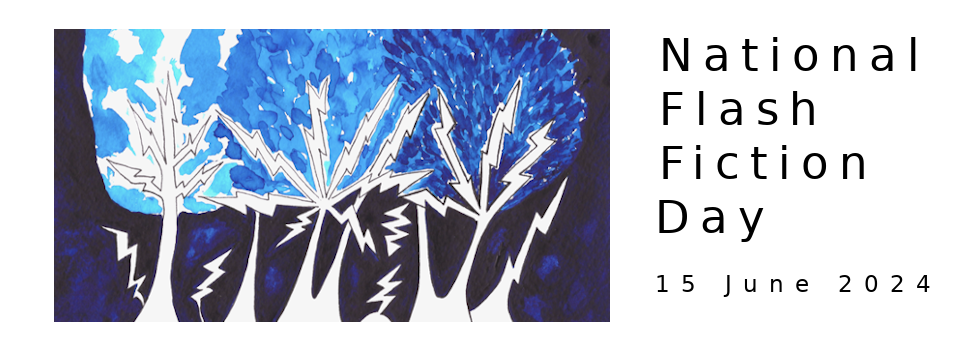In the spring of 2020, with the onset of COVID-19 lockdowns in the US, writer and performance maker Rachel Jendrzejewski taught two versions of an online class called How to Write When You Don’t Feel Like It through the Playwrights' Center and Minneapolis College of Art and Design.
Today, with many of us still struggling to find the energy to write, she's sharing her notes with National Flash Fiction Day in a five-part, text-based, self-guided mini-course.
How to Write When You Don’t Feel Like It
A mini-course by Rachel Jendrzejewski
PART 0. INTRODUCTION
“There are two of you—one who wants to write and one who doesn't. The one who wants to write better keep tricking the one who doesn't.” -María Irene Fornés
Context and Caveats
- Even beyond global pandemics and mass political uprisings, most of us will have experiences throughout our lives that make writing feel hard. Stress, grief, fear, illness, injury... so much one could write in response to these experiences, and yet sometimes that writing seems impossible.
- I have grappled a lot over time with this subject of not feeling like writing; it’s not a new thing this year. I thought about it especially a few years ago, while undergoing cancer treatment including chemotherapy, which took a physical and emotional toll on my practice—even as, on one level, I really wanted to be writing all the way through it.
- I want to say that it is okay if you don’t write for awhile. Even if “awhile” means years. You may need to focus on surviving, or sleeping, or doing other kinds of work. You can circle back to writing later, and the experiences you have in the meantime will inform that writing. You also could think of this non-writing time as part of writing, like a rest in a piece of music. Taking this kind of break does not make you any less of a writer or any less professional than anybody else. People work and configure their lives in all kinds of different ways.
- It’s common for artists to have crises about feeling “non-essential”—like our work doesn’t matter in the face of so many basic needs. This feeling is pervasive especially in the United States, where art really isn’t valued or supported widely as it is in so many other places. But I’m willing to argue that art is essential—as we process experiences and emotions stored up in our bodies, as we connect with each other, as we make the revolution irresistible (per Toni Cade Bambarayou), as we reach beyond survival mode into other states of awareness, knowledge, being... all of which also contribute to physical health. As Andrew Simonet observed in March 2020, in a crisis of meaning, artists are first responders. Don’t underestimate the value of skills like being open to the unknown, exercising imagination, conceiving possible futures, witnessing, empathizing, reframing, improvising.
- This class was designed for playwrights, but I’ve revised my notes toward making them translatable for other kinds of writers, too. This document is broken into 5 parts: Transition, Relaxation, Mechanization, Routine, and Accountability .
HERE WE GO
